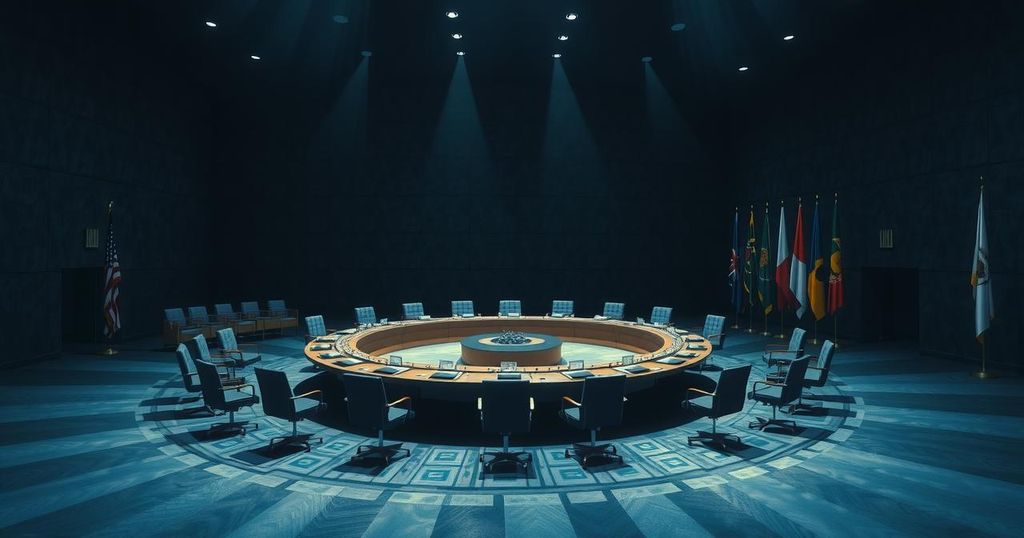Russia Critiques Syria’s Leadership Amidst Rising Sectarian Violence

Russia criticized Syria’s new leaders during a private UN meeting, highlighting concerns over sectarian violence and the rise of jihadists. Despite supporting past regimes, Russia is seeking to maintain influence and stability amid significant internal turmoil. The ongoing political transition in Syria poses risks, with alarm over foreign fighters and calls for inclusivity in governance.
In a recent closed United Nations meeting, Russia criticized Syria’s new leaders for their actions, warning about the increasing jihadist presence and comparably referencing the mass killings of Alawites to the Rwandan genocide. This condemnation comes despite Russia’s ongoing efforts to maintain two essential military bases within Syria, specifically in the coastal region where recent violence has occurred against the Alawite minority.
The violence erupted after an assault on newly established security forces, which was attributed to ex-military loyalists of former President Bashar al-Assad. This incident instigated widespread retribution against Alawites in several provinces. Although Russia previously supported Assad before his exile to Russia, they publicly advocated for Syria’s unity while expressing heightened criticism during private discussions at the Security Council.
Ambassador Vassily Nebenzia was quoted as saying that the ongoing killings in Syria had not been stopped, drawing parallels to historical genocides. His remarks highlighted the strategic balance Russia is attempting to maintain in the region, as they seek to reaffirm their influence while publicly supporting the interim Syrian government.
Moreover, Nebenzia warned that the dissolution of military forces and substantial public sector reductions could lead to a scenario reminiscent of that in Iraq, which experienced prolonged sectarian violence following regime change. The new Islamist rulers have included foreign fighters in their military strategy, raising concerns about their impact on Syria’s internal stability.
Syria’s interim president, Ahmed al-Sharaa, expressed intentions to prevent sect-based distribution of government positions and emphasized the desire to maintain strong ties with Russia. He announced plans to form a more inclusive government. Russia’s feedback during the briefing indicated that the new regime’s actions had established a corrupt basis detrimental to effective governance.
Notably, the Security Council, consisting of 15 members, is deliberating a statement to condemn the violence and advocate for the protection of all Syrian citizens, irrespective of their ethnic or religious backgrounds. Nebenzia expressed hope for an agreed statement soon, as the international community is closely observing the political transition in Syria, focusing on inclusivity among its diverse populations.
In summary, Russia’s recent private criticism of Syria’s new leadership underscores significant concerns regarding rising sectarian violence and the potential for increased jihadist activity within the country. As Moscow navigates its strategic interests amidst a severe political transition, it remains imperative for all parties involved to foster an inclusive approach that ensures the protection of all ethnically and religiously diverse groups in Syria. The international community’s vigilant watch over this transition will heavily influence future re-engagement with Syria.
Original Source: www.usnews.com






